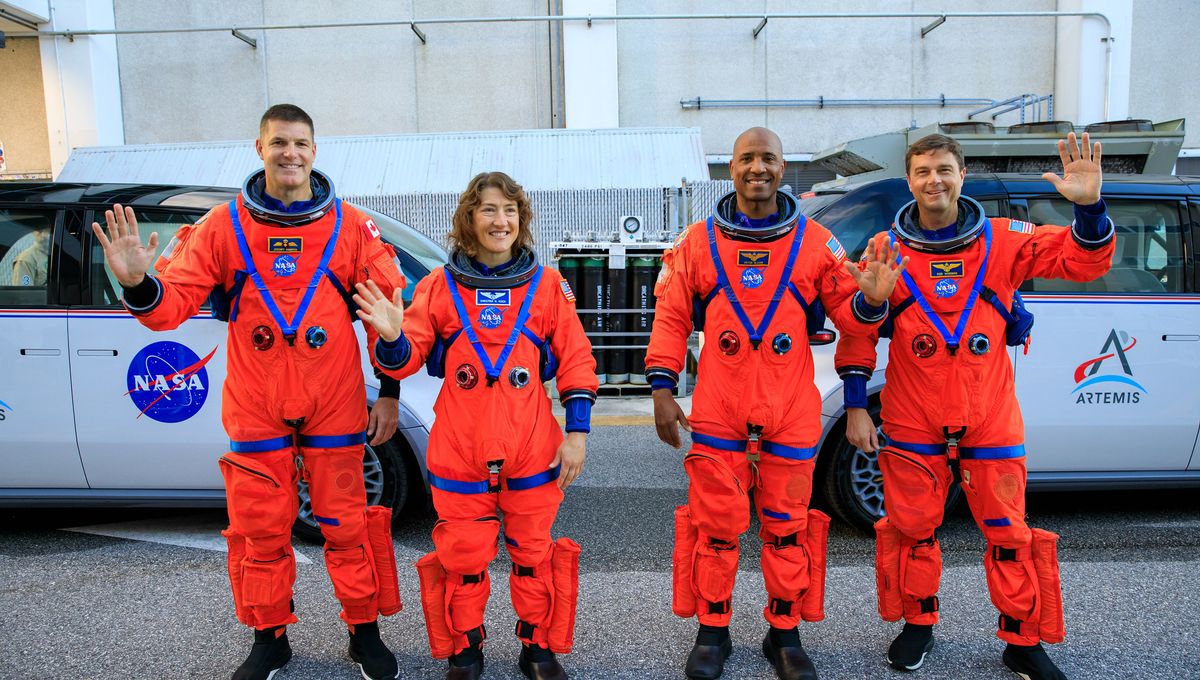
NASA has confirmed that humans will not be landing on the Moon again until at least 2026, nor circling it until September 2025. Coming the same day the Peregrine Mission One uncrewed mission to the Moon was abandoned, the announcement is further confirmation that spaceflight beyond low Earth orbit remains hard, and exploration of the Solar System cannot be rushed.
The Artemis III Moon landing had already been delayed from the initially planned date of 2024. Considering the more than a decade’s worth of JWST rescheduling, if it meets the current timeline it will have done very well by comparison. Officially at least, the Artemis IV mission to the proposed Lunar Gateway space station remains on track for 2028. The JWST comparison also shows that when it happens, the biggest missions can be worth the wait.
“Safety is our top priority, and to give Artemis teams more time to work through the challenges with first-time developments, operations, and integration, we’re going to give more time on Artemis II and III,” NASA Administrator Bill Nelson said during a press briefing yesterday. “So, what I want to tell you is, we are adjusting our schedule to target Artemis II for September of 2025 and September of 2026 for Artemis III, which will send humans for the first time to the lunar south pole.”
Although disappointing, the delay is not surprising and NASA certainly seems determined to put a good spin on the announcement, headlining the official statement as “NASA Shares Progress Toward Early Artemis Moon Missions with Crew.”
The news may be frustrating, but the reasons are sound. Losing Astrobiotic’s Peregrine mission, with dozens of science experiments on board is one thing, but if four astronauts were to die through lack of preparation few would forgive.
“We are returning to the Moon in a way we never have before, and the safety of our astronauts is NASA’s top priority as we prepare for future Artemis missions,” NASA Administrator Bill Nelson said in the statement.
“We’ve learned a lot since Artemis I, and the success of these early missions relies on our commercial and international partnerships to further our reach and understanding of humanity’s place in our Solar System. Artemis represents what we can accomplish as a nation – and as a global coalition. When we set our sights on what is hard, together, we can achieve what is great.”
It has been said that “Democracy takes time, but fewer people get shot.” A corollary might be that sensible space missions take time, but fewer astronauts starve to death in the vastness of space. The recent Russian attempt to land at the lunar south pole may well have failed because it was hurried in an effort to beat India to the same goal. With no other nation seriously in the contest to reach the Moon, NASA can afford to play it safe.
“We are letting the hardware talk to us so that crew safety drives our decision-making. We will use the Artemis II flight test, and each flight that follows, to reduce risk for future Moon missions,” NASA’s Catherine Koerner said. “We are resolving challenges associated with first-time capabilities and operations, and we are closer than ever to establishing sustained exploration of Earth’s nearest neighbor under Artemis.”
Arguably there are lessons for everyone else as well. One concerns just how remarkable the Apollo project was, not only to reach the Moon on President Kennedy’s timeline, but to not lose an astronaut in space. The other is to treat with great skepticism the more optimistic estimates of timelines for humans reaching Mars within 10 years.
Source Link: It's Official: Artemis Lunar Orbit Delayed To 2025 And Moon Landing To 2026